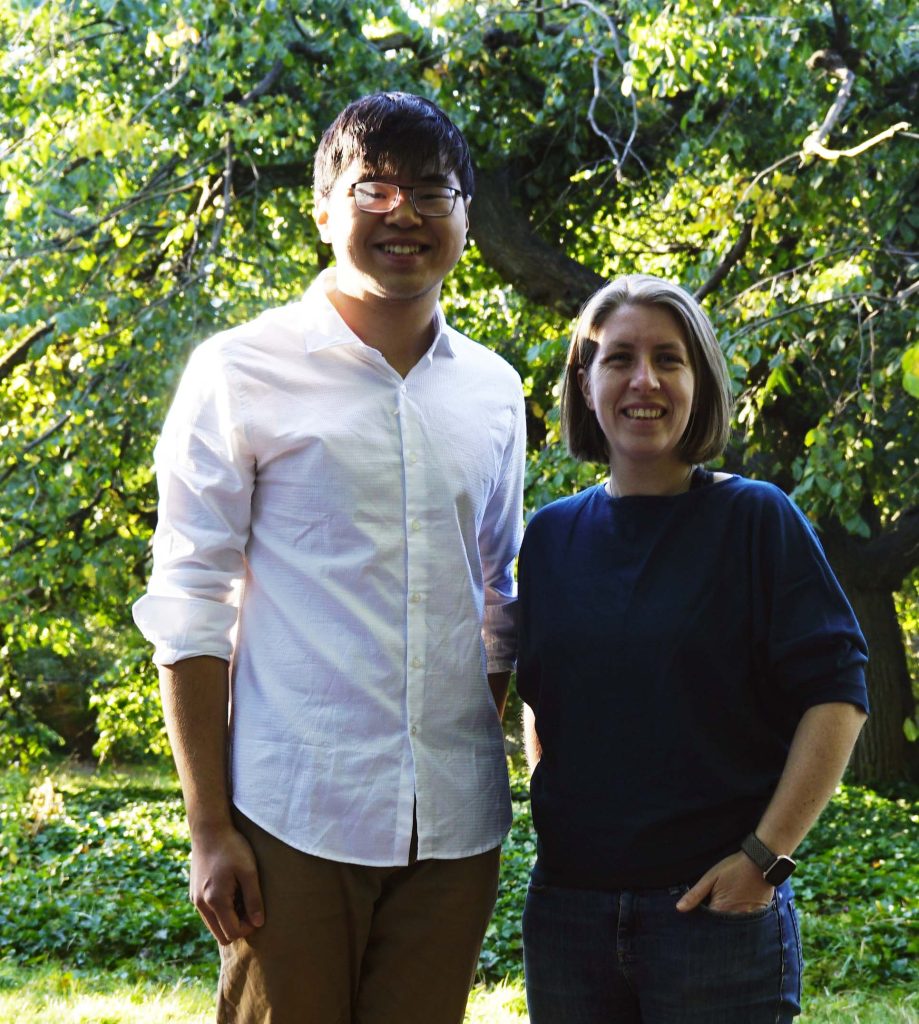What is MND
Find support
I have MND
I am supporting someone
Get involved
Research
About MND Scotland

Dr Murray and her PhD student, Ernie Ho, are testing the theory that, if motor neurons can be stimulated to regrow, it could help slow the progression of motor neuron disease (MND). In MND, motor neurons become damaged which leads to their progressive breakdown and loss of the connections between nerves and muscle, resulting in the characteristic loss in muscle function seen in the disease.
Motor neurons in people can regrow following damage but it is a slow process, and function is often not restored. The idea of identifying ways to stimulate motor neuron regrowth has been previously tested and has shown some positive results. However, the techniques used were not easily transferable to humans and there are currently no treatments that promote regrowth.
Dr Murray has received £92,000 for the project to test drugs already approved for human use in other conditions, to see if they can push forward our understanding of how to regrow motor neurons that are affected by MND.
Using the drugs, the research team hope to mimic an environment that encourages regrowth, similar to that found when the brain and body are developing in early life, with the hope that it will slow motor neuron death and promote regrowth.
In the initial stages of their project, the team will use a normal mouse to look at whether the drugs being tested can help motor neurons which have sustained damage to regrow. They will then test these drugs in a mouse model of MND to determine whether any regrowth effects can slow the loss of neurons, slow disease progression, and increase the length of time the animal remains mobile.
Positive results would lead to additional work looking at the best time to administer the drug, and whether they are particularly helpful in certain subtypes of MND.
The findings of this project could help push motor neuron regrowth research towards finding a novel way to help retain motor neurons and muscle function for longer and slow the progression of MND.
Dr Jane Haley, Director of Research at MND Scotland, said: “Motor neuron loss is a fundamental event in motor neuron disease. Finding ways to slow this, and to promote regrowth, is an incredibly important goal. We are pleased to be partnering with the Anatomical Society to fund this work which we hope will take us a step closer to being able to slow and reverse the devastating effects of this disease.”
Professor Nathan Jeffery, Honorary Research Officer, Anatomical Society, said: “We are proud to see this new partnership with MND Scotland come together to jointly fund this important neurodegenerative disease research project that will include anatomical approaches to enhance our understanding and treatment of MND”
Dr Lyndsay Murray said: “We are excited to receive this funding to allow us to test this new strategy. Our project will help us understand motor neuron regeneration in motor neuron diseases and whether stimulating this can help slow decline or enhance repair.”
Ernie Ho will be joining the Edinburgh team after recently graduating with a first-class degree in Medical Sciences at the University of Leeds. He said: “For my final year project, I was supervised by Dr Jessica Kwok and Ben Stevens to investigate ways to enhance plasticity on motor function recovery after spinal cord injury.
“The ice bucket challenge in 2014 raised my interest in motor neuron disease and I realised that MND is a devastating disease with short life expectancy. It pains me a lot to see people who are faced with this brutal disease. I am very thankful to Dr Lyndsay Murray, MND Scotland and the Anatomical Society, for allowing me to take part in this meaningful project.
Sign up
for newsletter
Get the latest news and events straight to your inbox.
You can help create a world without MND